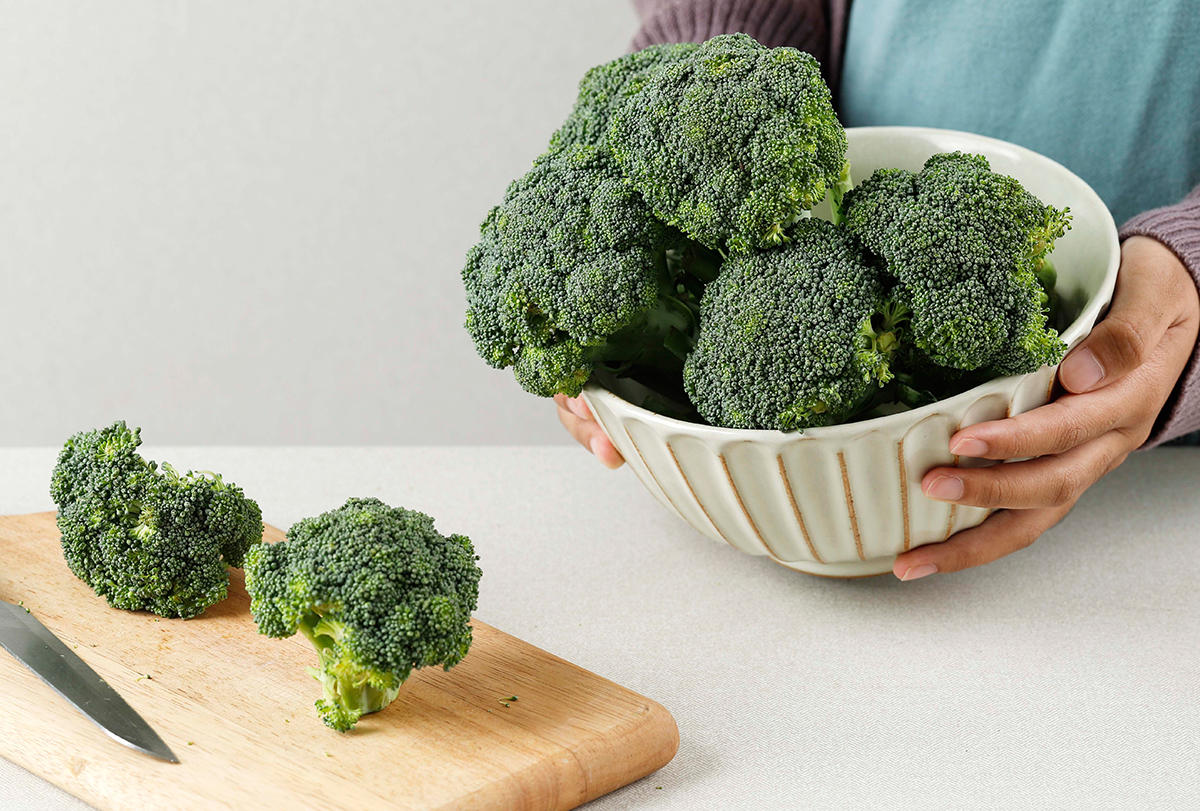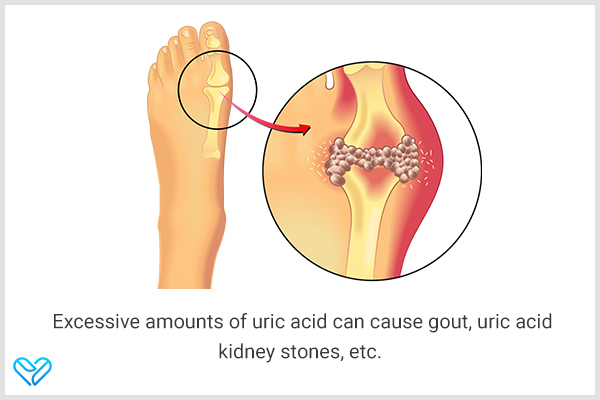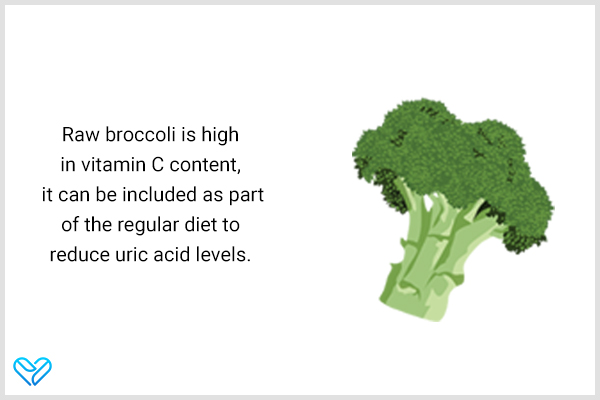In this article:
Animal proteins from chicken, meat, fish, and dairy contain a type of molecule called purine. When this purine breaks down, it is converted to uric acid in the liver, intestines, and, to some extent, muscles and kidneys.

Purine is also formed in the human body from the normal breakdown of DNA molecules. In a healthy adult, this uric acid is excreted from the body via urine. (1)
Uric acid levels can rise in the body – a condition known as hyperuricemia – when you consume large amounts of purine-rich foods or if you have kidney stones or a kidney disorder. (2)
In recent studies, vitamin C has been identified as a potent nutrient that can flush uric acid from the body. (3) Since broccoli is very high in vitamin C, with 100 g of raw broccoli providing 89 mg of vitamin C (99% of the daily value), it can be beneficial in lowering uric acid levels in the body. (4)
How Broccoli Lowers Uric Acid
As discussed above, broccoli contains vitamin C, which can improve the function of the kidneys and the clearance of uric acid from the body.
Studies have identified doses of 500 mg/day of vitamin C for at least 2 months to be effective in reducing serum uric acid levels. (3)(5)
Some experts do show concern over broccoli being a purine-rich vegetable. However, most studies have found the risk of eating animal sources of purine to be of greater concern. (6)
Why Is It Important to Lower Uric Acid in the Body?

Excessive amounts of uric acid can cause the following complications: (2)
- Gout, which is the accumulation of uric acid crystals in joints that causes arthritis with inflammation and pain
- Uric acid kidney stones
- Degradation or slowing down of kidney function due to excessive uric acid accumulation in the kidneys
To avoid the above complications, it is very important to ensure the proper removal of uric acid from the body.
Other Strategies to Lower Uric Acid Levels
Medication is usually the first line of treatment for lowering excessive uric acid levels, especially in the case of gout.
Fortunately, there are also some dietary and lifestyle management techniques you can employ to lower uric acid in the body: (7)
- Limit the amount of purine-rich foods such as red meat, fish, and poultry in the diet.
- Eat a diet high in whole grains, fruits, and vegetables.
- Drink 2 liters of water each day.
- Consume healthy fats from nuts.
How Do You Know Your Uric Acid Is High?
One of the first symptoms you experience with a high uric acid level is pain and inflammation in the joints. You can get lab tests done to assess the level of uric acid in your blood and urine. Consult your doctor immediately.
Practical Takeaways

- Uric acid is formed in the body when a molecule called purine is broken down in the body. Purines are obtained from animal foods such as meat, fish, and poultry, but they are also formed in the body from the breakdown of DNA.
- Uric acid is synthesized in the liver, kidneys, intestines, and, to some extent, muscles before it is cleared out from the body via urine.
- One of the most important nutrients that help in the clearance of uric acid from the body is vitamin C. It improves the functioning of the kidneys and pushes uric acid out.
- Since raw broccoli is high in vitamin C content, it can be included as part of the regular diet to reduce uric acid levels.
- High uric acid levels in the body can cause complications such as arthritis, uric acid stones in the kidney, and deterioration of kidney function.
- Other ways to lower uric acid levels include drinking 2 liters of water daily, limiting animal sources of food, eating healthy fat from nuts, eating whole grains and legumes, and including 4–5 servings of fruits and veggies in the diet.
- Was this article helpful?
- YES, THANKS!NOT REALLY


